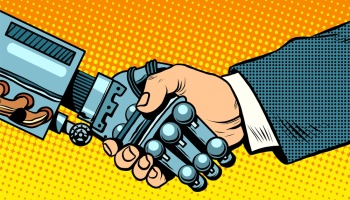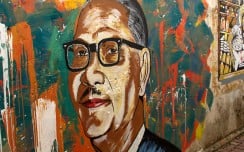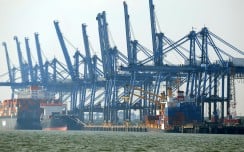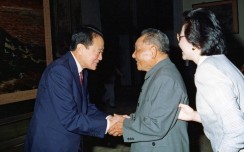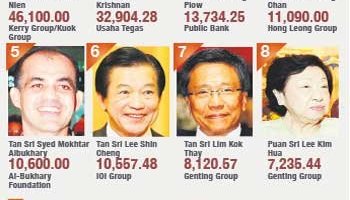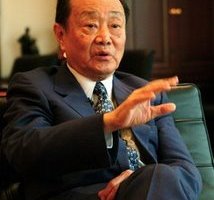Unfazed, this mass comm graduate overcame all kinds of challenges to make it in business.
SAMANTHA Mah did well on her first business venture but suffered a loss on her second. However, failure did not deter her and her two partners from moving on. They gave it another go until they could see the fruits of their labour.
Mah worked as a company administrator and voice talent for radio commercials before she decided to venture into business.— aNis aBdullah/The star
Mah’s first business received an investment of RM10,000 from her sister, Natasha, 37. She and two investor-partners started an online boutique targeted at young women. After one-and-a-half years, business picked up and was quite good.
Mah, 30, is the youngest in her family. She has two elder sisters and a brother.
Mah, Natasha and a friend Jason Leong, 31, started their trading company on March 8, 2011. Just four months later, it incurred a big loss, prompting them to change the products they were selling – from peanuts and sesame seeds to edible organic products.
A mass communication graduate from Universiti Tunku Abdul Rahman (UTAR) in Selangor, Mah had worked part-time as a company administrator and voice talent for radio commercials before she venturing into business. She is now the marketing manager/managing director of her company.
After starting Wide Tropism Trading, she passed her online boutique business to a friend.
One of the biggest challenges for Mah, at the beginning, was that neither she nor her partners had a corporate background.
“We handled matters based on our experiences. Sometimes we had to ask friends for advice.
“In the first few years, there were lots of arguments,” she said.
Mah is glad that her relationship with Natasha survived those trying times.
As part of the company’s costcutting measures, each of them had to take on more responsibilities in various departments.
“There were too many things on my plate – human resource, accounts, design and marketing – and I was suffocating. But we did not have enough (finances) to hire staff,” said Mah.
After two months, she “exploded” and cried during a meeting.
“I could not take the pressure and workload anymore,” she said.
Eventually, they could afford to hire new staff.
“Only then did things start to fall into place,” she said.
Cheated by a supplier
Initially, they were importing foods such as peanuts and sesame seeds, and distributing them to local suppliers. Unfortunately, they suffered a huge loss in the first year itself due to unscrupulous parties.
Due to limited cash flow, they could only import one container of stock at a time. Each time, they flew over to the exporting country, India, to check on the quality of the stock and witness the peanuts being loaded into the containers. The first two shipments went through successfully.
However, the third shipment, supposedly of Grade A peanuts, was discovered to contain Grade C stock instead, when it arrived.
She said: “No one in the market would accept the stock. We sought help from the local distributor to sell off the peanuts at a lower price but even then, no one wanted them. After trying for two months, we had to sell off the peanuts to a peanut butter factory at below cost. As a result, we ran into losses amounting to RM40,000.”
The supplier denied it was his fault and instead blamed others. They then contacted the High Commission of India, in Kuala Lumpur, for help but to no avail.
“We wondered how we were going to continue business. My father advised us to pick ourselves up, learn from it, and be more careful. Everyone was very supportive and encouraged us to continue. They believed we could do better,” she said.
Mah then sought help from her uncle, an experienced fruit trader and grocer. He advised her to run a business that’s less risky, such as repackaging and distributing organic products.
She and her business partners promptly took his advice.
In July 2011, her company had its first customer, a newly opened supermarket in Petaling Jaya. In two months, Mah’s team had designed the logo and sourced for products and packaging. And so, their label Love Earth was born.
Overcoming obstacles
Every day, Mah and her partners packed their products until midnight, and delivered them, working on weekends to selfpromote their products as well.
Said Mah: “Each time a new supermarket called, we’d celeto brate!”
Gradually, it was time start their expansion plan but they were hampered by limited cash flow.
They knew they had to spend more to create brand awareness. That’s when they started their online webstore.
“None of us had any knowledge about marketing. So I attended marketing and e-commerce talks to learn and see what we could do,” she said.
Mah recalled: “The first three years of business were really tough. My salary was only RM1,000 monthly (to cut costs).”
But their efforts paid off. After five years of sheer hard work, they could buy two units of four-storey shophouses.
The company started with 50 products and now has 180.
Currently, it is distributing these products to over 500 outlets throughout Malaysia.
New priorities
Mah, who got married two years ago, plans to expand her family this year. Her husband, C.V. Loh, 32, distributes bio-degradable plates, lunch boxes and bowls as well as health supplements.
She said: “I hope to have financial freedom, and more time for my family. If possible, I would like to be a part-time businesswoman and full-time housewife one day.”
She plans to raise her children herself and not send them to a nanny. She also hopes to travel more in the future. Presently, she travels at least thrice a year. Seeing other countries and cultures opens up one’s mind, she said.
Although she is a career woman, Mah believes in putting family first.
“Women play a role in bringing up the family. If a child is not well taught, he might be a nuisance to society in the future. But if he has a good upbringing, he can be the sun that shines and brings benefits to all. Also, a woman is the pillar that upholds the family,” she said.
Mah explained that even though she studied mass communication and broadcasting, it was during her internship that she realised that she wanted to go on a different career path than she had originally planned.
After her graduation, she thought of going into volunteer work. But her uncle advised against it. He told her to be successful so that she could help herself and others in future.
By Majorie Chiew The Star
Related posts:

 More and more Malaysian parents are turning towards homeschooling today for various reasons.
More and more Malaysian parents are turning towards homeschooling today for various reasons.






















